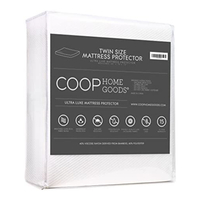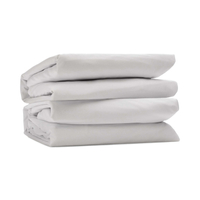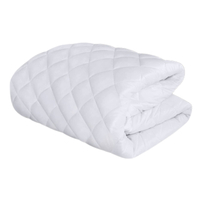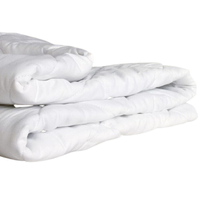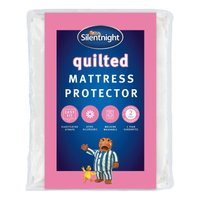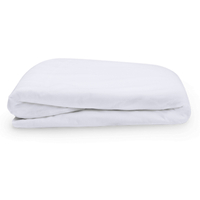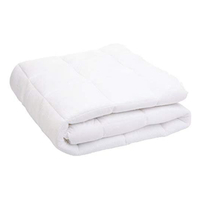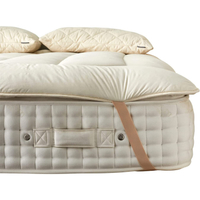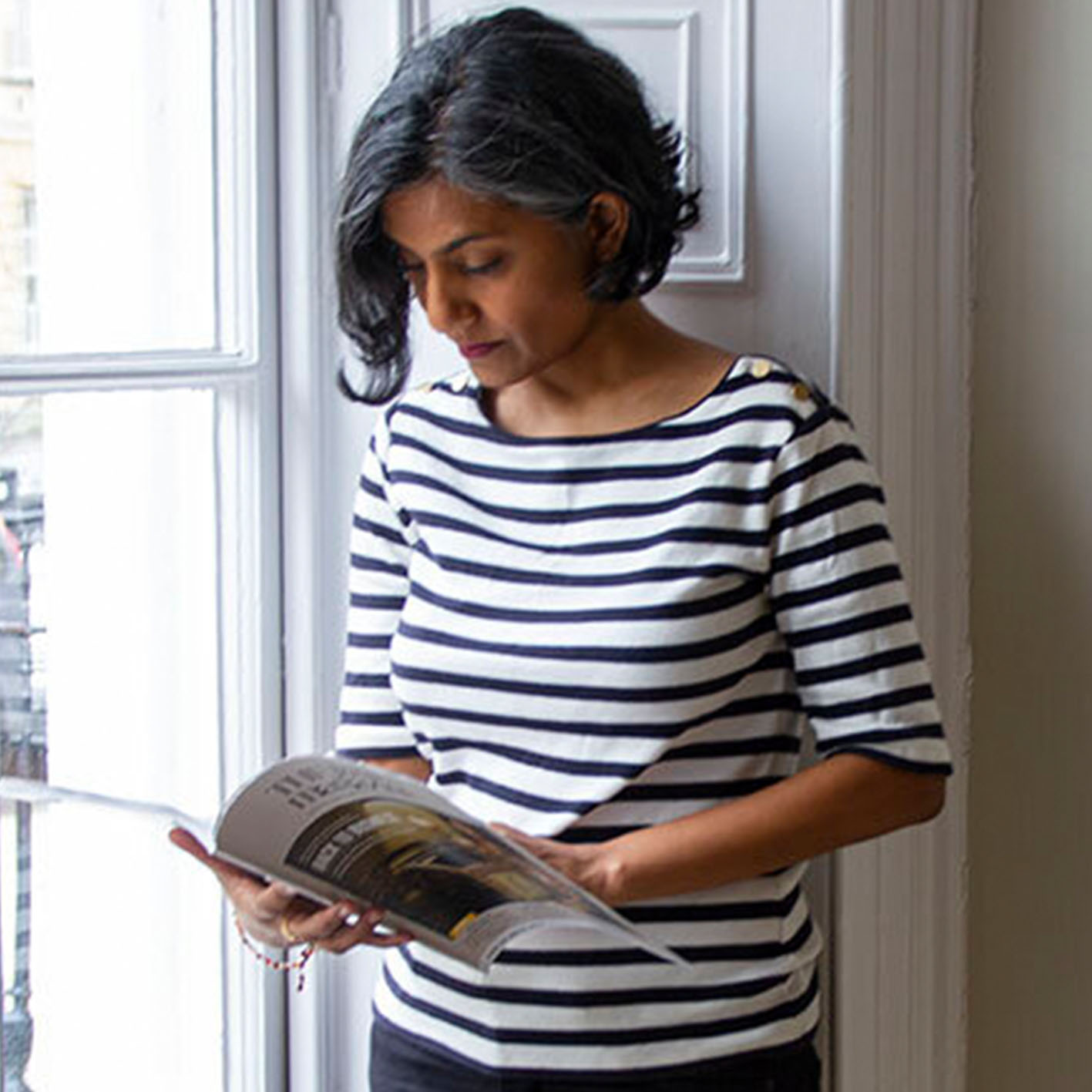Mattress protectors vs mattress pads: what’s the difference?
In our mattress protectors vs mattress pads comparison, we look at both accessories to help you decide what you need
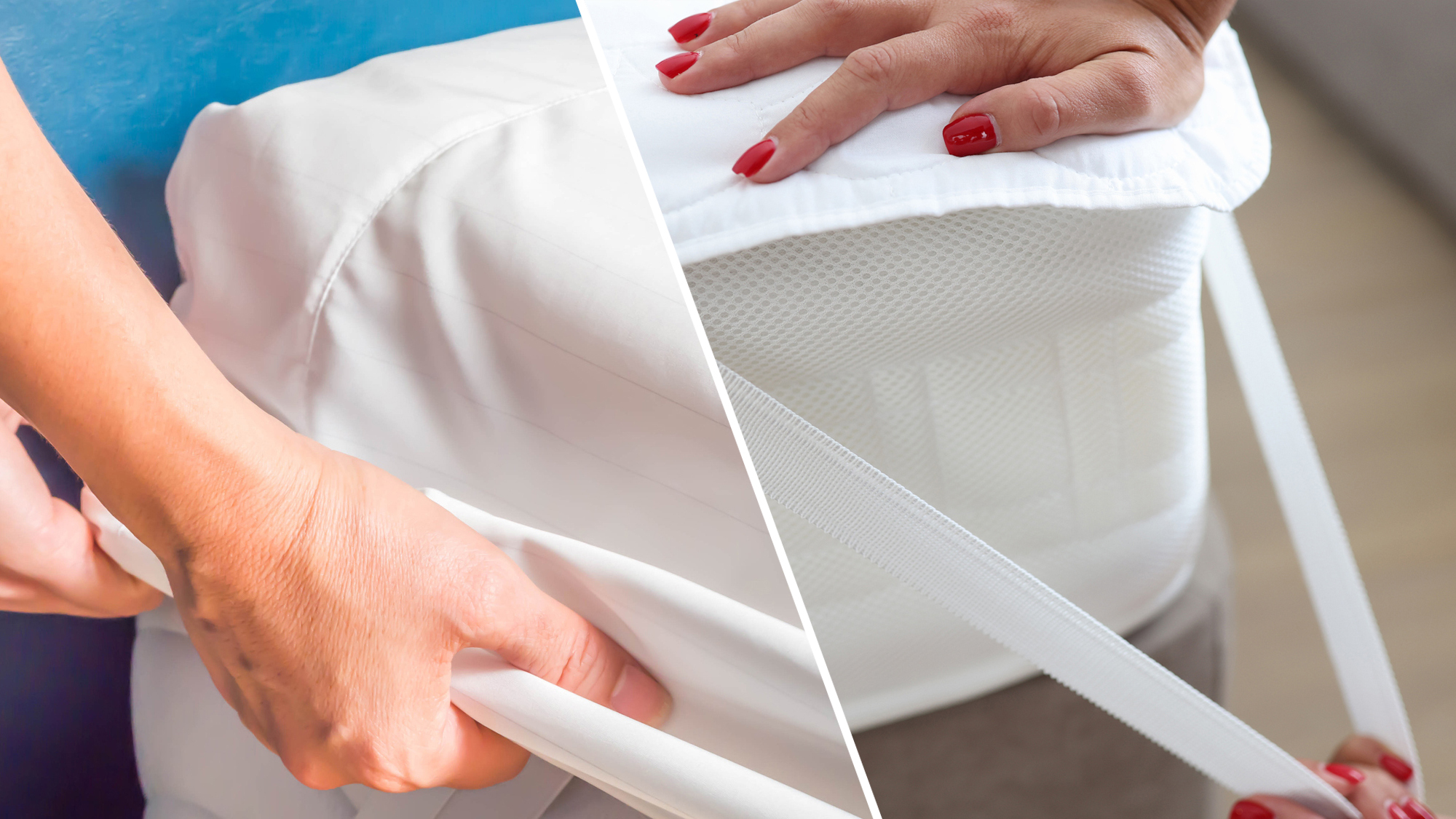
A clean and comfy mattress is a must for healthy sleep, and two accessories that help you create exactly that are mattress pads and protectors. While they look similar at first glance, there are key differences between the two, which we explore in our mattress protectors vs mattress pads comparison.
Whether you have recently invested in the best mattress for your sleep or you have an older bed that you’re keen to look after, one of the best mattress protectors will do the job with ease. This easy-to-fit layer of fabric defends against sweat, spills, dust mites and, depending on the design, bed bugs.
But when it comes to comfort, there’s a little more on offer with mattress pads, which deliver around an inch of cushioning. That isn’t enough to rival a good mattress topper, but pads do offer more comfort than protectors while offering some basic hygiene features.
In our mattress protectors vs mattress pads comparison, we look at their differences, drawbacks and benefits, and highlight some of our go-to options. We expect to see a range of protectors and mattress pads discount in the forthcoming Memorial Day mattress sales too, which is another chance to save money on these bedding essentials.
Mattress protectors vs mattress pads: What are they?
- Mattress protectors keep your bed safe from spills, stains and dust mites
- Mattress pads offer some protection but not as much
- Pads add a little extra softness, while protectors are too thin to do so
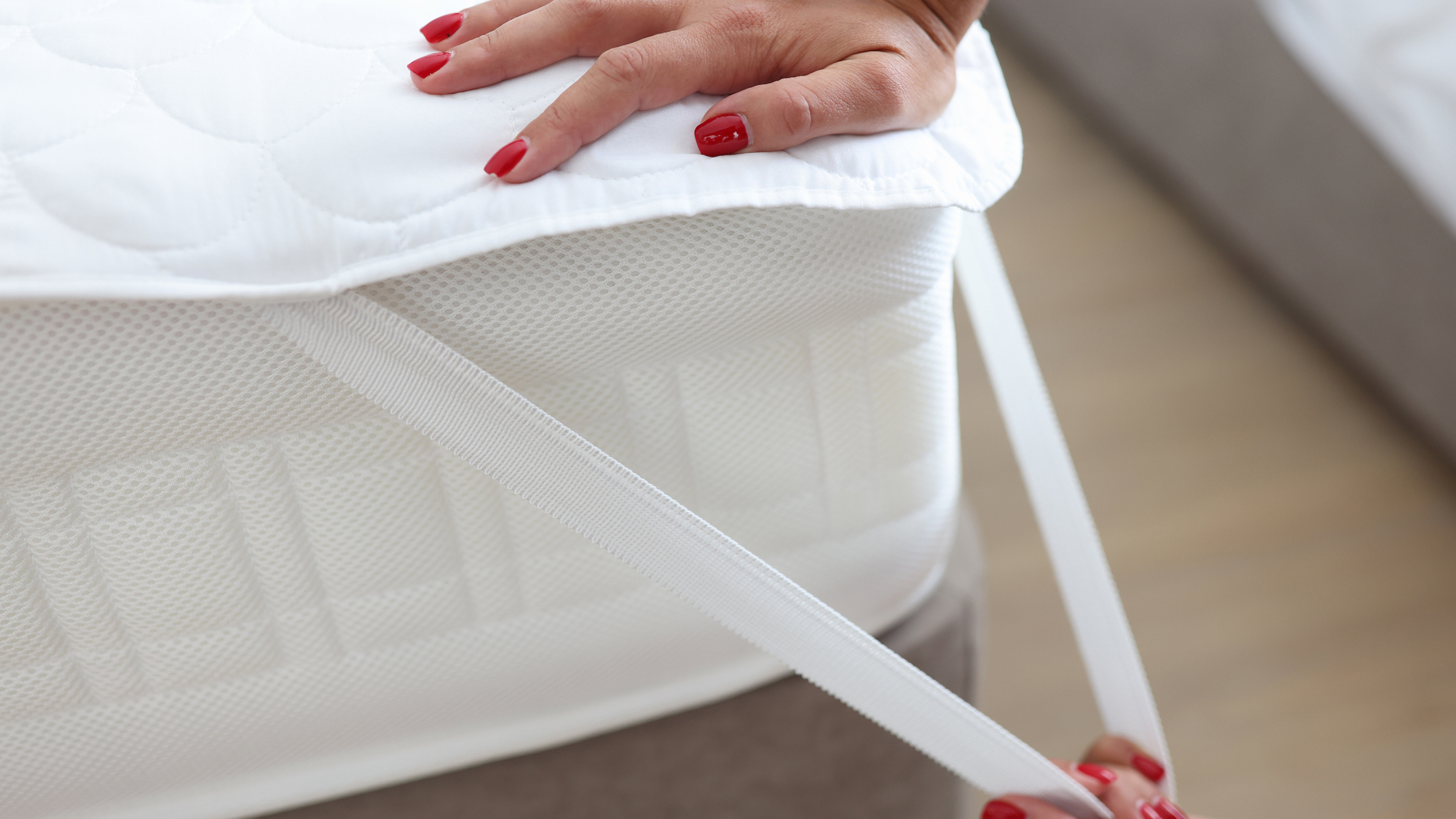
While both accessories keep your mattress fresh, mattress protectors are specifically designed for the task and often have a waterproof fabric that creates a barrier against accidental spills and bedwetting. They also safeguard against yellow sweat stains, and block allergens such as dust mites, with full mattress encasements stopping bed bugs from getting in.
While mattress pads also offer some protection, few are completely waterproof. However, they do have a thin layer of plushness that subtly alters the feel of your bed. Pads are usually one to two inches thick at the most, compared to toppers that are usually two to four inches thick.
So mattress pads won’t drastically change your bed’s feel or firmness, or offer pressure relief like a proper topper, but they can make your bed feel more plush.
Get daily insight, inspiration and deals in your inbox
Sign up for breaking news, reviews, opinion, top tech deals, and more.
Mattress protectors vs mattress pads: Benefits
- Mattress pads are good for adding a little extra comfort
- Protectors are far better for safeguarding against spills, stains and germs
- Both are better than leaving your mattress without any protection
A mattress pad is a quick and easy way to give your mattress a little boost of comfort, but don't expect them to perform in the way a bed topper would. They don't offer pressure relief or extra support, though some made with natural materials are cooling.
If you are looking to keep your mattress in great condition while adding a little extra plushness, then a mattress pad is a great solution. It offers enough of a defence against wear and tear without adding much bulk.
To protect against spills, stains, germs, dust mites, bedwetting and even bed bugs, a mattress protector is by far the better of the two. These thin, often waterproof layers create a strong barrier against liquids seeping through. Many brands offer rustle-proof versions too, so you don’t need to worry about a plasticky feel or noisy rustling whenever you move around in bed.
Mattress protectors vs mattress pads: Differences
- Mattress pads are usually one to two inches thick
- Mattress protectors are very thin yet often waterproof
- Pads are more expensive but not as pricey as toppers
While mattress pads aren’t as thick as toppers, they still offer a touch of plushness. Mattress protectors offer a thin layer of waterproof fabric that can barely be felt and are more effective at keeping dust mites and other critters at bay.
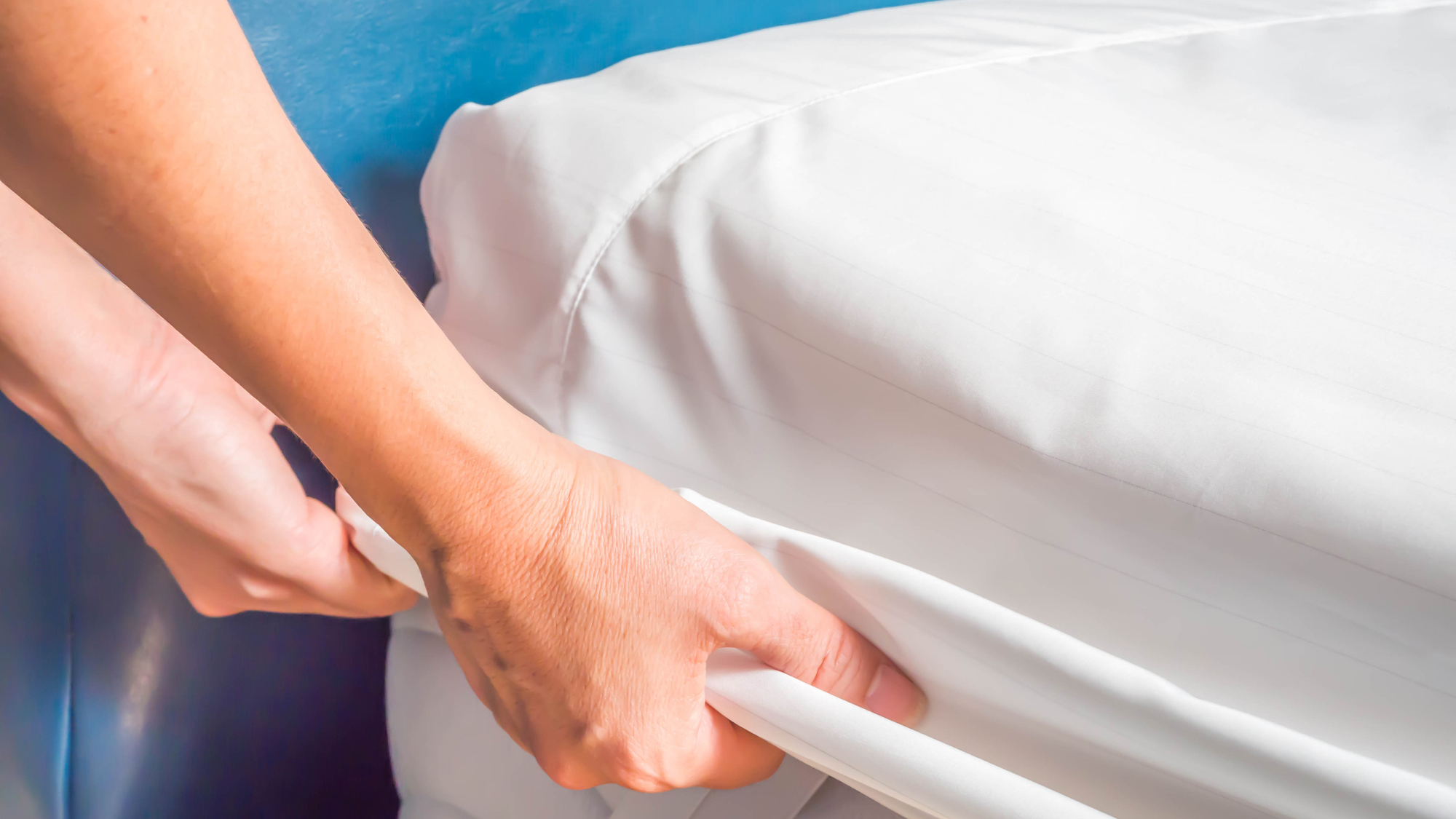
The barrier provided by protectors not only keeps your bed clear of accidental spills (or bedwetting), but if you sleep hot and are prone to sweating, then your mattress will stay fresh and free of bacteria too.
While both accessories can be cleaned in a washing machine, a mattress protector will fit into the machine more easily and dry quicker, making them a more practical choice. They are also more portable, as well as simple to fold, pack or store away when not in use.
For more plushness and protection against wear and tear, then a mattress pad is the better option. While not all pads are waterproof, they still offer some protection against sweat and spills, but you might want to consider using a protector beneath a pad to ensure your mattress stays dry and clean.
Mattress protectors vs mattress pads: Prices
- Mattress pads are usually more expensive than protectors
- Mattress protectors start from as little as $11
- Waterproof features quickly increase the price
Both accessories come in options to suit most budgets. Because mattress protectors use fewer materials, they are more affordable, plus you will often find them given away as part of free bedding bundles when you buy a boxed mattress. But as they are flimsier and washed more often, they generally won’t last as long as pads.
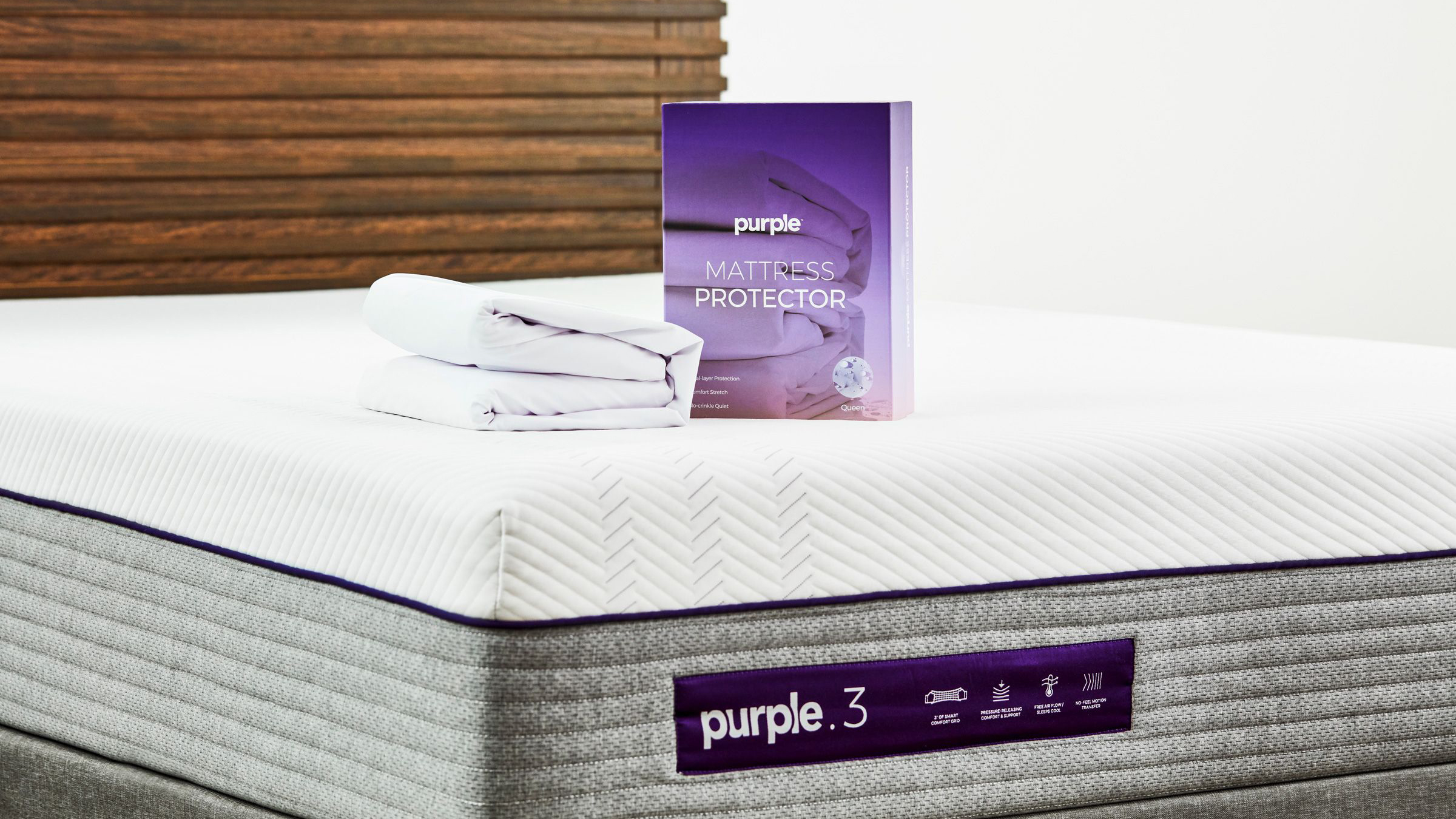
Prices generally start from under $15 from online retailers such as Amazon, Target and Walmart. Factor in organic materials or waterproofing and the price rises. Luxury sleep brands such as Purple and Saatva design premium mattress protectors, with prices starting from $79 and $95 respectively.
Mattress pads are also pretty cheap compared to thick mattress toppers, but this depends on the materials used. Expect to pay more for one made using organic materials. The most common materials are feather, wool, fiber (polyester fill) and even bamboo; the Nolah Bamboo Mattress Pad is a fine example of this, with prices starting at $100.
As with most things, it’s worth spending a little more to guarantee a good quality product that will last longer and won’t end up in landfill within a year. More affordable protectors and pads are also a good solution for beds used less often, such as in guest bedrooms.
Mattress protectors vs mattress pads: Materials
- Mattress pads can be made using cotton, feathers, wool and foam
- Mattress protectors are thinner and use waterproofed fabric
- Both are quick and easy to fit over most mattresses
Pads and protectors are made to fit all standard mattress sizes, both UK and US. Both accessories are easy to fit, with mattress protectors usually attaching in the same way as a fitted sheet or fully zipped cover around the bed. Meanwhile, pads simply rest on top of the mattress, attach with elastic straps, or use the same fitted-sheet design as a mattress protector.
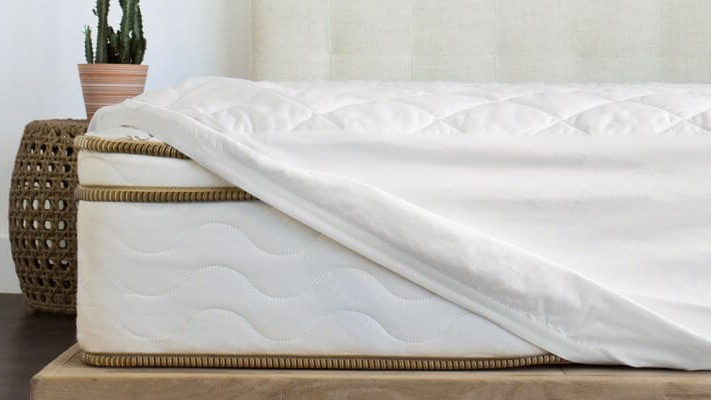
Mattress pads are available in different materials from natural organic wool covered in crisp cotton covers, to synthetic foams and soft polyester. The feel will alter depending on the material, so if you’re looking to stay cool, you may prefer to choose natural materials such as wool or bamboo. For extra softness, choose mattress pads made with feather or wool, like those sold by Saatva and Birch Living.
Mattress protectors are usually made with polyester or cotton, and have added polyurethane for waterproofing. When choosing one for your bed, try to find one that’s rustle-free so that it doesn’t create any noise as you shift position.
Mattress protectors vs mattress pads: Key brands
There is generally a wider range of mattress covers available compared to pads. Nearly all the major sleep brands offer both, and as mentioned earlier, quite often manufacturers throw in a free protector along with other bedding when you buy a mattress.
Here are a few of our go-to pads and protectors to give you an idea of what’s good…
US MATTRESS PADS AND PROTECTORS
Coop Home Goods Mattress Protector: from $37.99 at Amazon
This waterproof mattress protector is ideal for safeguarding your mattress against bedwetting and accidental coffee spills. The top is waterproof, while the sides are breathable to allow heat to escape out the sides of the mattress. It’s machine washable and comes with a five-year warranty.
Purple Mattress Protector: from $79.99 at Purple
This is another high-performing waterproof mattress protector, dissipating spills so that they don’t puddle on top. That’s why you’ll often see user reviews talking about how it’s excellent for safeguarding against bedwetting. The Purple Mattress Protector is also stain-resistant.
Utopia Bedding Mattress Pad: from $16.99 at Amazon
This basic microfiber mattress pad is ideal for guest bed use. It comes in all major mattress sizes and has a quilted top for extra comfort. This one isn’t waterproof though, so it’s just there to add a little plushness, plus protection from stains and smells.
Saatva Mattress Pad: from $155 at Saatva
To add extra softness, consider the Saatva Mattress Pad. This quilted mattress pad is made from 100% GOTS certified organic cotton with moisture-wicking properties. It fits mattresses up to 16” tall and can be machine washed for freshness. For the latest savings, see our Saatva mattress sales guide.
UK MATTRESS PADS AND PROTECTORS
Silentnight Quilted Mattress Protector: from £17.99 at Amazon
This is a half-way house between mattress pads and protectors, adding quilted cushioning plus protection against dust mites and stains. It fits mattresses up to 15 inches tall and works in the same way as a fitted sheet. This one is also machine washable and has a two-year Silentnight guarantee.
Simba Mattress Protector: from £90 at Simba
If you want the very protection for your new bed, take a look at this high-tech mattress cover from Simba. It’s made from breathable, 200 thread count cotton, with the brand’s own Bi-Ome tech reducing odour and the growth of microorganisms. There’s usually a Simba mattress discount available for it too.
Amazon Basics Mattress Pad: from £25.50 at Amazon
This polyester pad is box-stitched to prevent the fill from moving around and bunching up in one spot. The Spandex-infused sides make it easier to pull and stretch over your mattress, and it’s especially plump compared to basic pads.
The Woolroom Mattress Pad: from £131.25 at Amazon
One of the most sumptuous organic mattress pads you’ll find in the UK, The Woolroom’s plush offering is just under two inches thick and is held in place by thick elasticated straps. It’s perfect for adding super-soft comfort to firmer beds, and wool is breathable too so it won’t retain heat.
Mattress protectors vs mattress pads: Which one should you buy?
When it comes to the one essential item you should buy for your bed, a mattress protector is it. Not only does this humble bit of fabric safeguard against spills, sweat, allergens and bacteria, it will keep your mattress protected for the duration of its sleep trial or warranty.
But if you need a bit of extra comfort or durability, then a mattress pad should give you what you need, creating more protection against wear and tear, and making your bed just that little bit snugglier.
While not all pads are waterproof, they do offer plenty of protection, so it’s worth adding one if you need slightly more comfort. If you want to radically alter the feel of your mattress, making it firmer, softer, or cooler, then you should consider a mattress topper, which is thicker and a great way to upgrade a mattress. Don’t forget, you can use a mattress protector with a pad or topper for the ultimate in protection and comfort.
Finally, some mattress manufacturers will give away protectors as part of a free bedding bundle, which nearly always include the brand’s best pillows and sheet sets, giving you everything you need for a comfy night’s sleep. So if you are buying a new bed, check to see whether you can get a free cover for it before buying your own.
Read more:
- How long does a mattress last? We find out
- Learn how to clean a mattress of stains and spills
- Bed care: how often should you rotate your mattress
- The best sleep trackers for monitoring your snooze
Grace Franks is an experienced sleep and mattress writer who has written for our sister sites Tom's Guide and T3, among other brands. She's interested in organic and eco-friendly sleep products, and how good sleep can improve our general wellbeing. When not writing about mattresses, Grace loves reading, creative writing, and practicing yoga.
